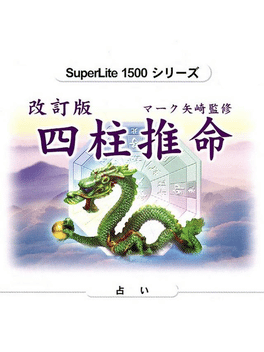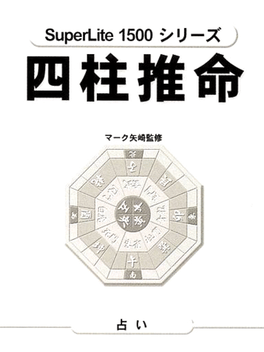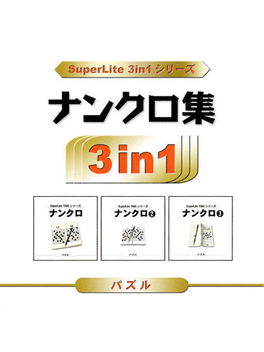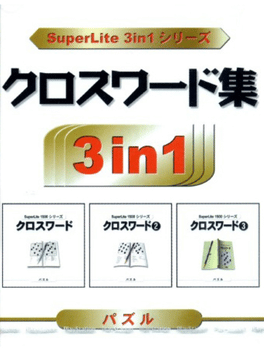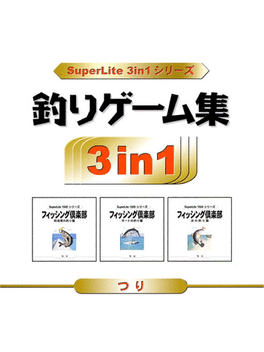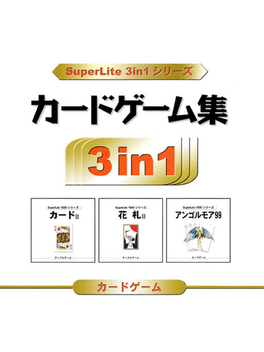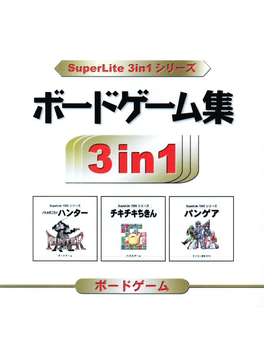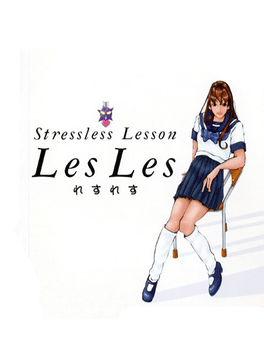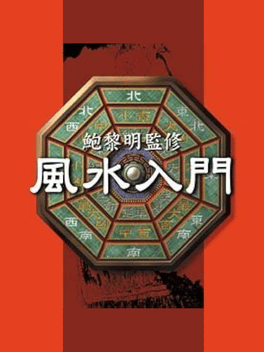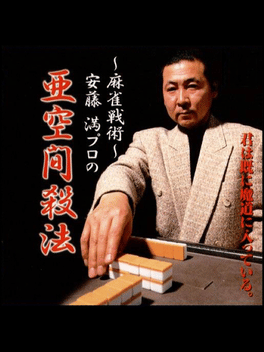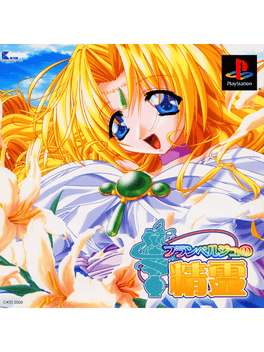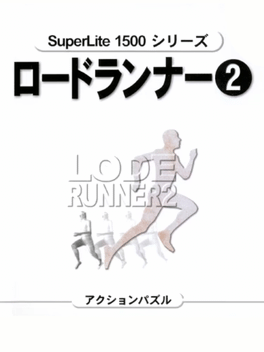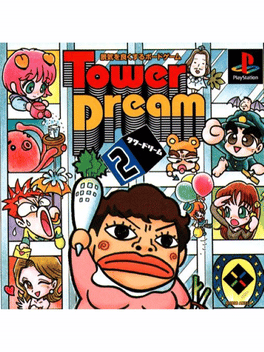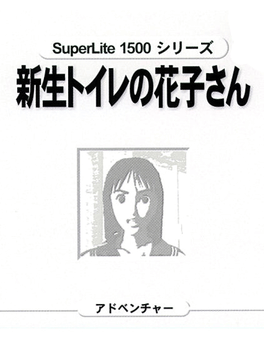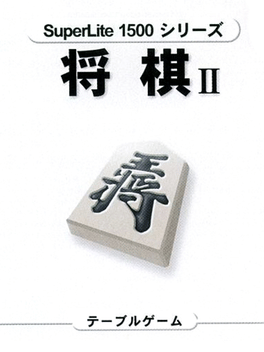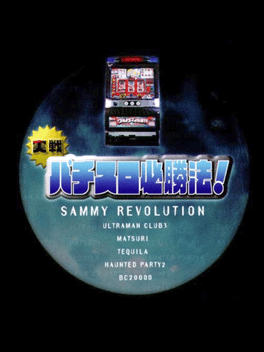Most Popular Playstation Games - Page 13
-
SuperLite 1500 Series: Kaiteiban Shichuu Suimei - Mark Yazaki Kanshuu
2001
SuperLite 1500 Series - Kaiteiban Shichuu Suimei - Mark Yazaki Kanshuu is a chinese zodiac simulation in which the player can put the birth date to know what the future will brings to him. -
SuperLite 1500 Series: Mark Yazaki no Shichuu Suimei
1999
Shi-Hashira Suimyou is a Miscellaneous game, developed and published by Success, which was released in Japan in 1999. -
SuperLite 3in1 Series: Crossword Shuu
2001
Superlite 3 in 1 Series - Crossword-Syuu is a crossword game that is a compilation of SuperLite 1500 Series - Crossword 1 to 3 that features more than 600 different crossword puzzles with different difficulty levels. -
SuperLite 3in1 Series: Tsuri shuu
2001
Superlite 3 in 1 - Series Tsuri Shuu is a compilation of 3 fishing games released for the PlayStation console: - Fishing Club - Boat no Tsuriken: (The Boat Fishing) In this game the player go fishing using a boat. - Fishing Club - Bouhatei no Tsuriken: (The Breakwater fishing) In this game the player can go fishing in docks near the sea. - Fishing Club - Hama no Tsuriken: (The beach fishing) In this game the player can go fishing in beaches. -
SuperLite 3in1 Series: Card Game Shuu
2002
Superlite 3 in 1 - Card Game Syuu is a compilation of 3 card games released for the Playstation One console: - Superlite 1500 Series - Card II - SuperLite 1500 Series - Hanafuda II - Angolmois 99 [Superlite 1500 Series] -
SuperLite 3in1 Series: Game Shuu
2002
Superlite 3 in 1 - Board Game Syuu is a compilation of 3 fishing games released for the Playstation One console: - Battle Hunter (Board Game/RPG) - Crossroad Crisis (Puzzle) - Pangaea (RPG) -
Stressless Lesson: Les Les
1997
Stressless Lesson - Les Les is a puzzle game released exclusively in Japan for the Sony PlayStation. Choose the person you want to confess to from eight men and women, and finally confess to the person you like. -
Pao Lee Ming Kanshuu: Feng Shui Nyuumon
2001
Pao Leeming Kanshuu - Fuusui Nyuumon is a simulation video game that is an introduction to Feng Shui, the game explains what is Feng Shui, the player will have diagnosis by each room (entrance, kitchen, bathroom, bedroom, etc.), by floor, items (like tv, furniture, etc.), also is each item is in harmony with the environment. There is also favorite diagnosis in which the game will provide a diagnosis in the directions of the player's essenstial points. Also the Feng Shui by purpose in which it will provide the Feng Shui the is the right one about love, money, health, child care, work, etc. -
Mahjong Senjutsu: Ando Mitsuru Pro no Akuukan Sappou
1996
Mahjong Senjutsu: Andou Mitsuru Pro no Akuukan Satsuhou is a Miscellaneous game, published by Warashi, which was released in Japan in 1996. -
Flamberge no Seirei
2000
Flamberge no Seirei
2000
Flamberge no Seirei is an Adventure game, developed and published by Kid, which was released in Japan in 2000. -
SuperLite 1500 Series: Fishing Club - Boat no Tsuri-hen
2000
Fishing Club: Boat no Tsuriken is a Sports game, developed and published by Success, which was released in Japan in 2000. -
SuperLite 1500 Series: Fishing Club - Hama no Tsuri-hen
2000
Fishing Club: Hama no Tsuriken is a Sports game, developed and published by Success, which was released in Japan in 2000. -
SuperLite 1500 Series: Fishing Club - Bouhatei no Tsuri-hen
2000
Fishing Club: Bouhatei no Tsuriken is a Sports game, developed and published by Success, which was released in Japan in 2000. -
SuperLite 1500 Series: Lode Runner 2
2000
Lode Runner for the PlayStation is two games on one disc. First, there is Lode Runner: The Legend Returns, a graphically enhanced remake of the computer classic. Secondly, there is Lode Runner Extra, a sequel of sorts that continues where the former game left off. In The Legend Returns, the once green and fertile Earth is now a cesspool of filth, made this way by centuries of pollution. What remains of humanity resides deep within caverns, searching for gold, a substance still considered valuable. With enough gold, a person can buy safe passage from the planet. Chief among these Lode Runners is Jake Peril, a man who spends most of his time climbing ladders and ropes, walking across platforms, falling off platforms, digging holes and, of course, scooping up piles of gold. As you guide Jake around the underworld, grabbing all the gold so you can progress to the next level, a subterranean cult of gold worshippers will follow you around and make your task difficult. You can dig holes to momentarily trap these Mad Mon -
Tower Dream 2
1998
Tower Dream 2
1998
Tower Dream 2 is the sequel to the SNES game that features 13 different selectable characters and 13 different boards to play, and up to 4 human players can play at the same time using the multitap function. -
F-1 Grand Prix 1996: Team Unei Simulation
1997
F1 grand Prix 1996 Team Unei Simulation puts the player in the role of a F1 team manager the player can choose the manager nationality): The player can choose the sponsor, talk with his team mechanics to design his own car (choosing all the car parts), hire the team drivers, test the F1 car before each race and after that compete in all the 1996 F1 grand prix and guide the team to the victory using your own strategy (but the player can't drive the cars). -
SuperLite 1500 Series: Shinsei Toire no Kakosan
1999
Shinsei Toire no Hanako-san [SuperLite 1500 Series] is a first person adventure game based on the Hanako-San tale, in the game the player takes the role of one of 3 girls that are friends at school and wants to know more about the hanako legend. The game takes places in 4 chapters and features CG rendering and full japanese voice acting. There are different endings depending of the player choices during the girl. -
SuperLite 1500 Series: Shougi II
1999
SuperLite 1500 Series - Shogi II is a shogi game with different game modes and 3 different kind of boards, pieces & backgrounds. -
Jissen Pachi-Slot Hisshouhou! Sammy Revolution
1998
Jissen Pachi-Slot Hisshouhou! - Sammy Revolution (aka Pachisuro! Sammy Revolution) is a pachi-slot (gambling machine) game that features a perfect recreation of 5 gambling machines (Ultraman Club 3, Matsuri, Tequila, Haunted Party 2 & BC20000) with different levels of zoom. A slot machine (American English), fruit machine (British English), poker machine (Australian English) or simply slot (American English) is a casino gambling machine with three or more reels which spin when a button is pushed. Slot machines are also known as one-armed bandits because slot machines were originally operated by a lever on the side of the machine (the one arm) instead of a button on the front panel, and because of their ability to leave the gamer penniless. Many modern machines still have a legacy lever in addition to the button. Slot machines include a currency detector that validates the coin or money inserted to play. The machine pays off based on patterns of symbols visible on the front of the machine when it stops. Modern com
